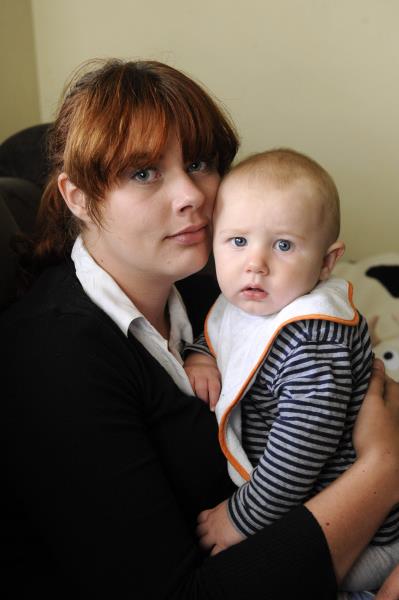
By LIA SPENCER
SHORTLY after her mother died, a young, heartbroken Jamie Bakker left an emotionally abusive household. She was depressed, self-harming and on the brink of suicide. She decided to leave home to try and make a better life for herself.
Nearly 10 years later, the 25-year-old single mother has never had a steady home- she slept in a friend’s garden shed for two years, then in a shipping container. She stayed on friend’s couches and in granny flats. She stayed in a unit that was so dirty that she had to throw out bottles of urine left by previous tenants.
Ms Bakker eventually moved into a rental property with her son’s father, but after a relationship break-down, she and her baby Ajax moved into a share-house. She chose to move out after finding drug paraphernalia left lying around by the owner’s ice-addicted son.
“The lowest point for me was just after I had Ajax (when the relationship with his father broke down),” she said.
“There is so much more stress when you have a baby. It really limits the places you can live. You need to find somewhere safe for your baby.”
The Pakenham woman is now living with her partner Rick, but has always wanted a house to call her own to provide her son with a stable and healthy environment. But that dream could be a far stretch due to a number of factors including a competitive housing market mixed with little income and a bad credit history.
Ms Bakker admits that she wasn’t very good with money and is still learning how to save. She racked up thousands of dollars in credit at a young age after having a car accident.
“The main part of my debt comes from when, a week after I got my licence, I had an accident and didn’t have insurance. That was $15,000. That’s pretty much all my debt ,” she said.
“I am now on a Part IX debt agreement, so if I can keep up with payments, my debt will be paid off next year. But I haven’t been able to make payments lately and if I miss too many, (the agreement) is cancelled and I am back to square one.”
Ms Bakker said that with a Centrelink payment of $500 a fortnight, and casual work earning her a maximum of $250 a shift about once a week, she was barely scraping through. Most of her wages go towards rent, food, nappies, formula, fuel and car repayments.
Ms Bakker said she did spend some money on cigarettes but had never touched drugs- a common misconception she believed many people have about the homeless.
“Life is very good at throwing curveballs- and when you are living pay check to pay check, any curveball can just derail everything,” she said.
“I’ve had a few friends in similar situations as me- especially when we were teenagers. My best friend at the time was gay and his parents were unaccepting, so they kicked him out and he couch surfed. I also think a lot of people have misconceptions about what it means to be homeless. A lot of people wouldn’t have known I was homeless by looking at me- it’s called the hidden homeless.
“I think people also see people on the street and think they got their because of drugs- but sometimes people are homeless because of situations out of their control.“
Though times are tough, Ms Bakker continues to strive to make a better life for her son, and right now credits Rick for helping them get on their feet and providing a roof over their head.
“Ajax has given me a reason to live,” she said. I just want to give him a healthy, happy life.”




